 |
 |
 |
| |
Factors influencing psychological distress during the COVID-19 pandemic in people aging with HIV
|
| |
| |
Brouillette M1, Koski L3, Scott S2, Austin-Keiller A1, Fellows L4, Mayo N2
1Department of Psychiatry, McGill University Health Centre, Montreal, Canada, 2Division of Clinical Epidemiology, McGill University Health Centre (MUHC), Center for Outcomes Research and Evaluation, Montreal, Canada, 3Department of Psychology, McGill University Health Centre, Montreal, Canada, 4Montreal Neurological Hospital and Institute, McGill University, Montreal, Canada
webcast - https://www.youtube.com/watch?v=gvxbNtD3k1Q
Most of the participants who developed psychological distress had normal pre-pandemic HADS scores. Predictors of psychological distress were: feeling lonely quite often, not having someone to confide in and financial insecurity. Age ≥ 65 was protective. None of the HIV-related variables were predictive of distress.
Conclusions: We found that, among 77 middle-aged and older adults living with HIV in Montreal, 39.5% of the participants experienced an increase in psychological distress between the pre-COVID-19 and the first wave of the COVID-19 periods. Social factors had an important contribution to the emotional response to COVID.
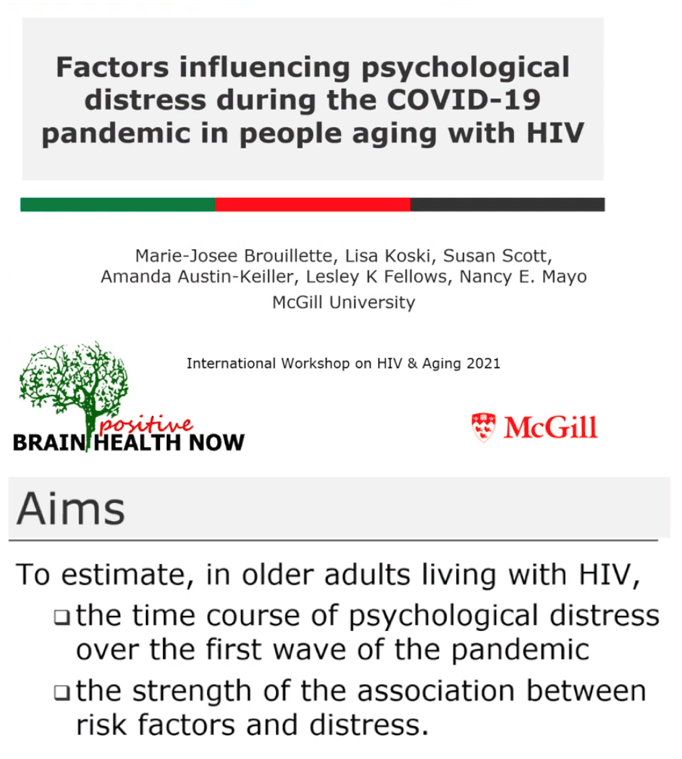
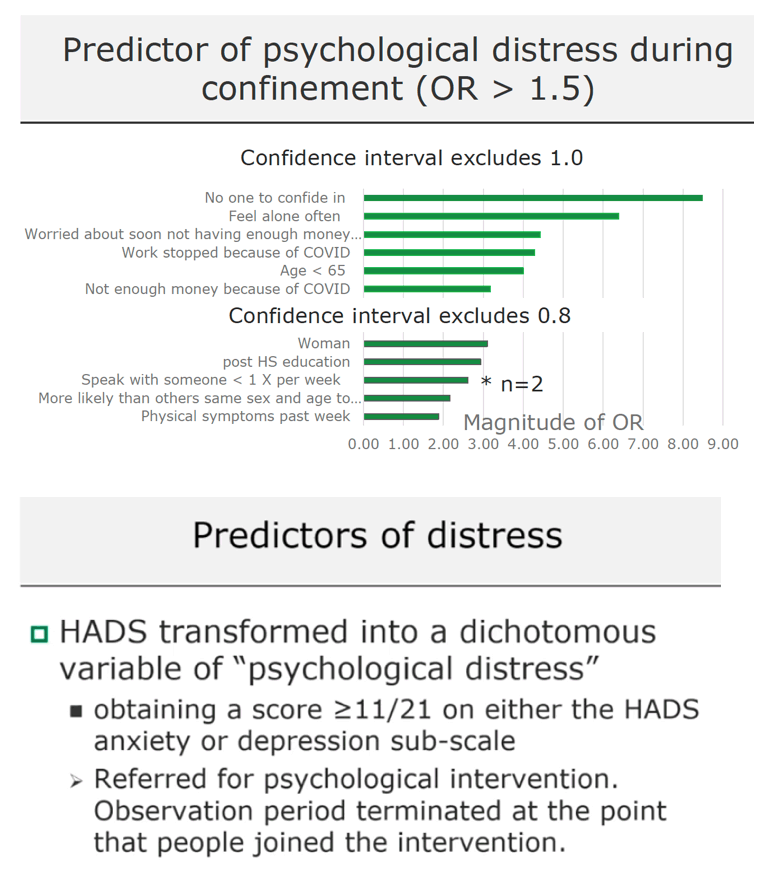
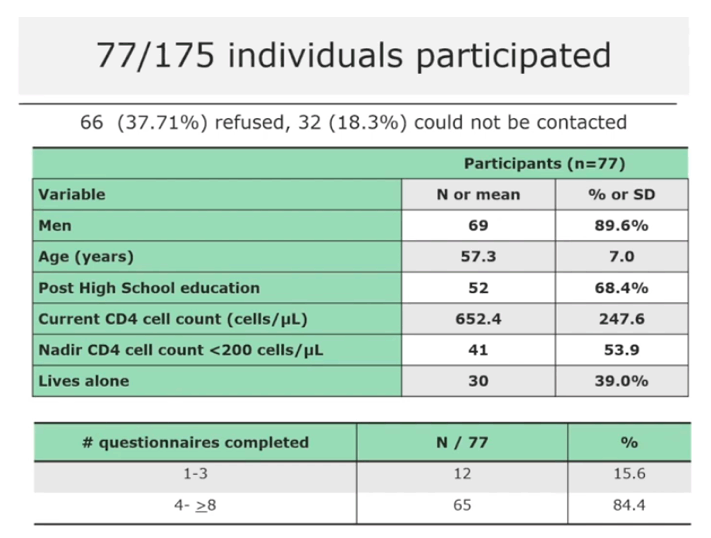
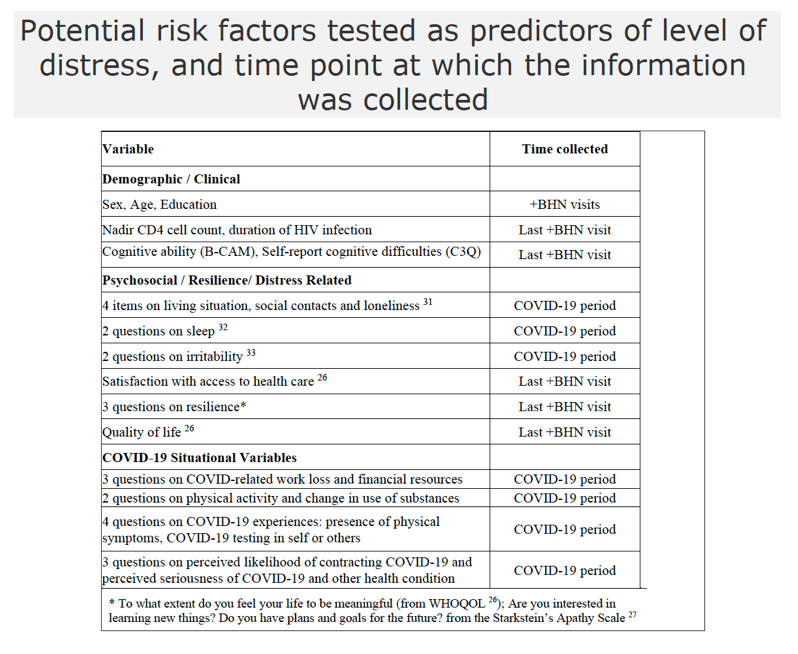
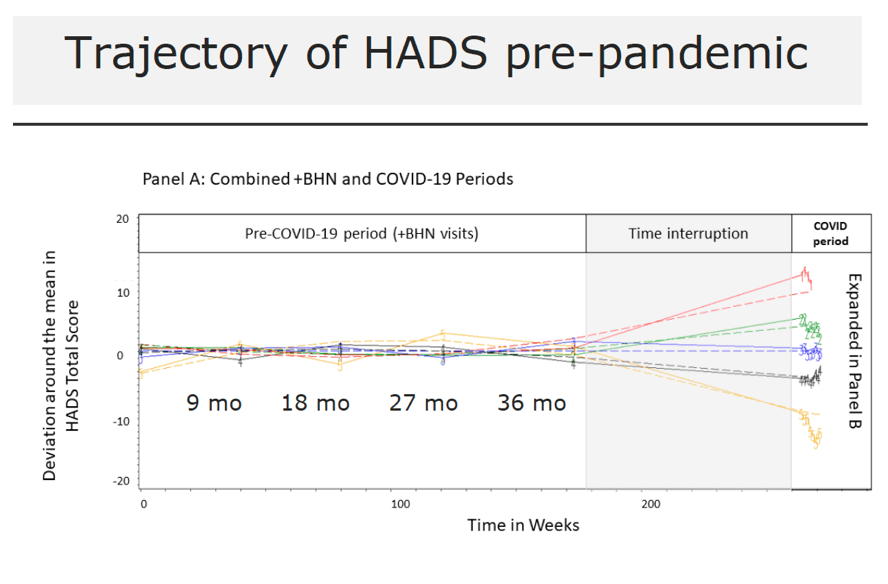
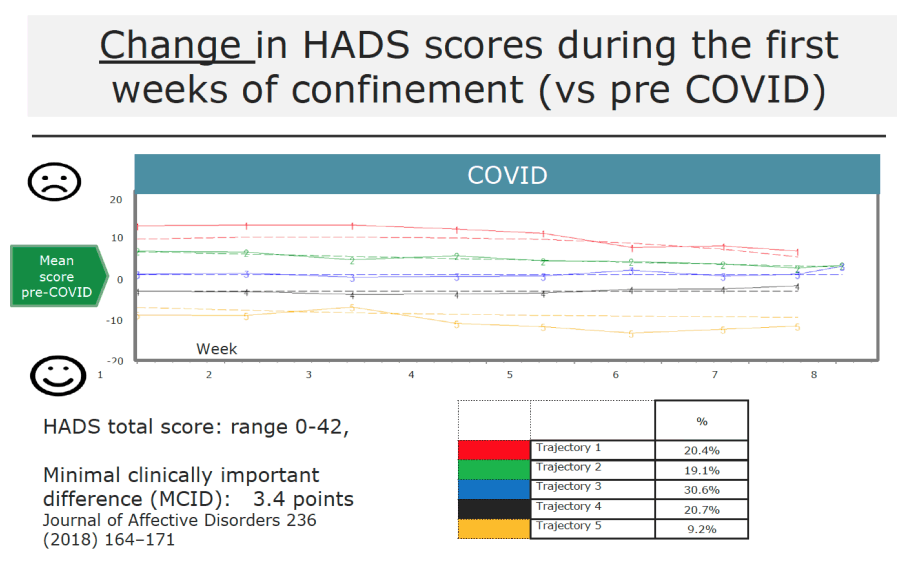
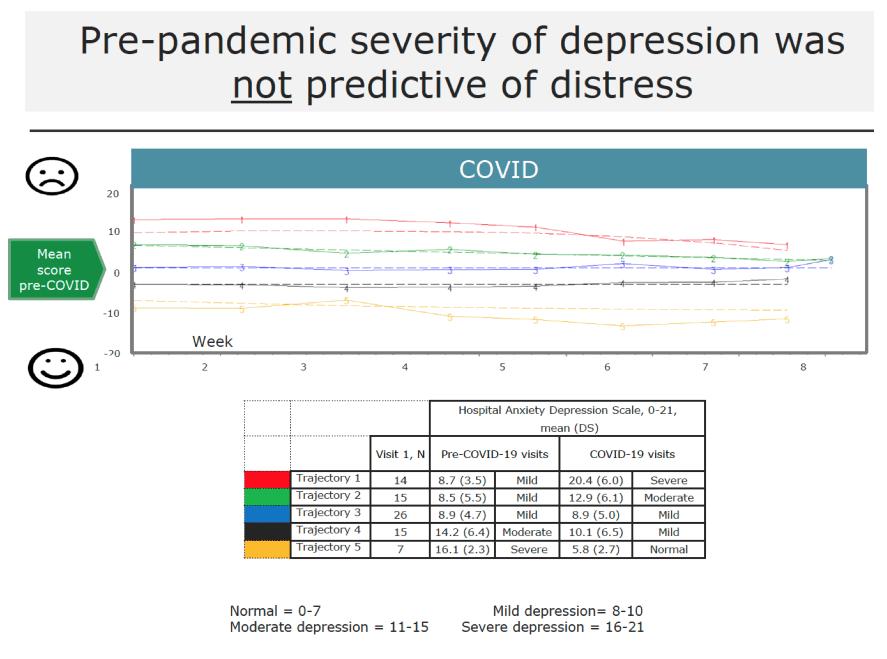
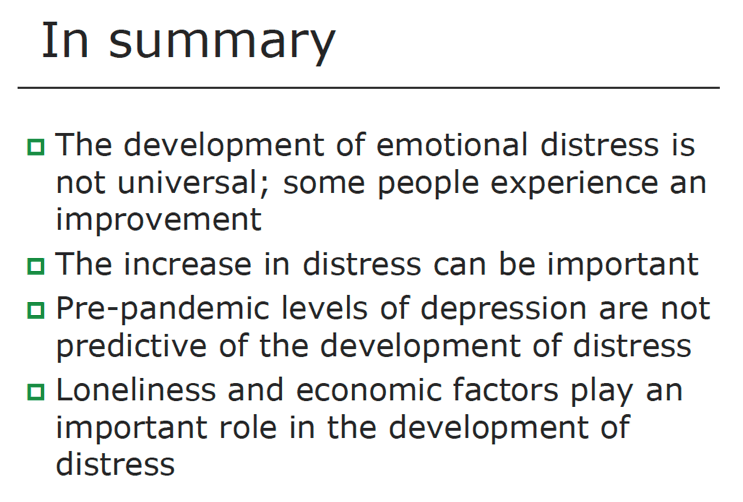
|
| |
|
 |
 |
|
|